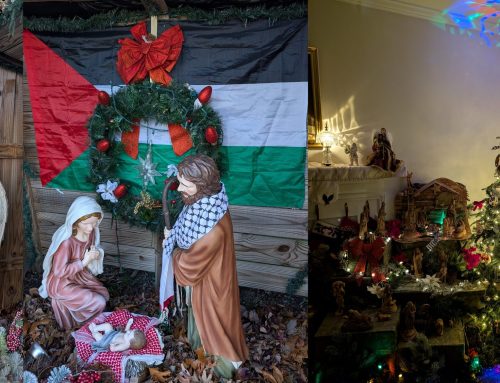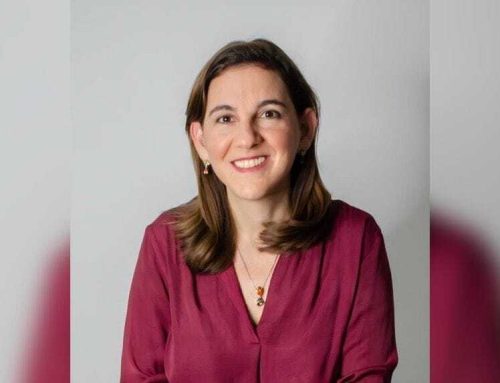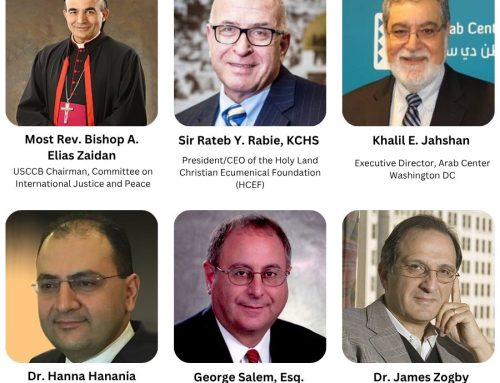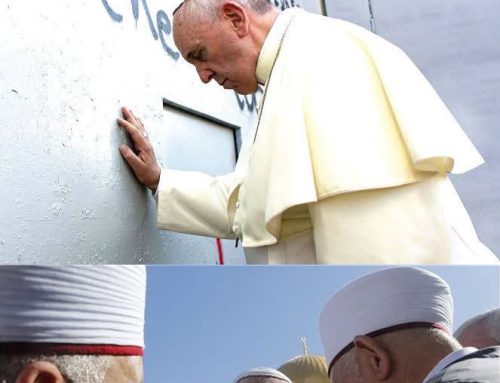Rateb Y. Rabie, KCHS, and Saliba Sarsar, Ph.D.*
A flurry of major diplomatic activities and declarations relating to Palestine and Israel is surrounding the transition in the United States from the Obama Administration to the Trump Administration. It seems that relevant parties are trying to catch up with what they needed to do all along before President-elect Trump takes office or to establish a legacy of peacemaking success where nothing to speak of existed in the past few years.
There was first United Nations Security Council Resolution 2334 on December 23, 2016, calling Israel’s settlement project a “flagrant violation of international law,” which passed in a 14-0 vote, with the U.S. abstaining. In explaining the U.S. abstention rather than veto, U.S. Ambassador to the UN said, “The United States has been sending the message that the settlements must stop, privately and publicly, for nearly five decades.”
Then, there were U.S. Secretary of State John Kerry’s remarks on Middle East peace on December 28, 2016, which some viewed as anti-Israeli or as “too little, too late,” thus resulting in little to no benefit to the Palestinian people. Secretary Kerry elaborated on the U.S. action at the UN stating, “the vote in the United Nations was about preserving the two-state solution. That’s what we were standing up for: Israel’s future as a Jewish and democratic state, living side by side in peace and security with its neighbors.” He further elaborated that “if the choice is one state, Israel can either be Jewish or democratic—it cannot be both—and it won’t ever really be at peace. Moreover, the Palestinians will never fully realize their vast potential in a homeland of their own with a one-state solution.”
On January 15, 2017, France will convene around 70 foreign ministers for a Middle East peace conference, at the end of which the top Palestinian and Israeli leaders will meet to explore the restarting of their peace talks. While the Palestinian leaders have accepted the invitation, the Israelis have not, fearing that the conference will result in “a Security Council vote on the Israeli-Palestinian peace process.”
What is missing from the above activities and declarations is a clear and serious concern for humane values and the culture of peace that must continuously be cultivated if despair, fear, and humiliation are to disappear in the Holy Land. What is lacking is a focus on hope, human security, and dignity, which are vital elements of a good quality of life.
Unfortunately, politicians often get caught in election cycles, party loyalty, ideological myopia, or media frenzy. They rarely take time to understand the implications of their actions and statements on the lives and livelihoods of ordinary citizens.
Secretary Kerry stated: “Friends need to tell each other the hard truths, and friendships require mutual respect.” We cannot agree more.
Palestinian leaders are urged to stay focused on creating an independent State of Palestine. Resolving their internal divisions, building up national institutions; maintaining law, order, and security; achieving concrete successes in job creation, economic viability, and human development; and conducting negotiations that will improve the daily realities of people—all will generate trust, financial assistance, and favorable international public opinion.
Israeli leaders are urged to moderate their stand and reach out to Palestinian leaders. While Israel has military prowess, security comes more from stability and peace. Ending the occupation, arguing for Palestinian self-determination, and, yes, being the first to recognize the State of Palestine will truly transform national relationships.
Here are basic truths.
First, peace is born by preparing for it. The responsibility and credit for peace rest with all of us. Education for peace is essential for disabling stereotypes, dispelling fear, and creating trust and compassion. A shared vision of peace, if supported by a strong political will and dedicated engagement by all concerned, can relieve society of the unknown and set the foundations for a sustainable culture of peace.
Second, the habits of peace must be cultivated, including a wider perspective, long-term view, compassion and nonviolence.
- A wider perspective helps us manage the anger and pain of past injustices, and prepare us to welcome the future.
- A long-term view lets us see the forest for the trees.
As the Dalai Lama states: “When something terrible happens, instead of finding some individual or group to blame, fostering hatred and a desire for revenge, we should try to take a broader view and consider the longer term.”
- Compassion, as the Charter for Compassion makes clear, “impels us to work tirelessly to alleviate the suffering of our fellow creatures, to dethrone ourselves from the center of our world and put another there, and to honor the inviolable sanctity of every single human being, treating everybody, without exception, with absolute justice, equity, and respect.”
- Nonviolence guides us to avoid the trap of being drawn into a violent confrontation. This necessitates tremendous courage, self-control, and a willingness to endure pain and adversity. Through nonviolence, we dramatically reduce the moral legitimacy of those who persist in using violent strategies against non-violent opposition. Also, as explained by Martin Luther King, Jr., “The nonviolent approach does not immediately change the heart of the oppressor. It first does something to the hearts and souls of those committed to it. It gives them new self-respect; it calls up resources of strength and courage that they did not know they had. Finally, it reaches the opponent and so stirs his conscience that reconciliation becomes a reality.”
Third and finally, as related to the Holy Land, both Palestinians and Israelis are neighbors. The quicker they come to this realization, the better they will be for it. It is in this context that contentions between them must be resolved and peace plans must be drawn.
All concerned would also benefit from embracing humane values, as enshrined in holy books and traditions, such as advocating for justice, caring for those who are less fortunate, forgiveness, and love. The religious or spiritual voice is a gift that must not remain unopened in our troubled world and in peace negotiations.
Moreover, those engaged in peacemaking cannot ignore the important peacebuilding work that religious and secular organizations are undertaking to improve the lives and livelihoods of millions in the Holy Land. These organizations must be supported. Their staff and volunteers are “the real unsung heroes.”
In Secretary Kerry’s words, “violence, terrorism, incitement, settlement expansion, and the seemingly endless occupation” are “combining to destroy hopes for peace.” Adults and children alike will continue to face an uncertain future without a ray of natural light at the end of the tunnel of conflict.
Palestinians and Israelis, Palestinian Americans and Jewish Americans, the incoming Trump Administration, members of Congress, the media, and others—all must learn from past mistakes and not let another golden opportunity for peace dissipate. They must put their faith into action and work in concert “to replace despair with hope, fear with human security, and humiliation with dignity,” as we in the Holy Land Christian Ecumenical Foundation (HCEF) believe.
Where will peace be more meaningful than in the Holy Land? “And,” as Hillel the Elder said, “if not now, when?”
*Rateb Y. Rabie, KCHS, is the Founder and President/CEO of HCEF. Saliba Sarsar, Ph.D., is Chair of the HCEF Research and Publication Committee and Professor of Political Science at Monmouth University.






